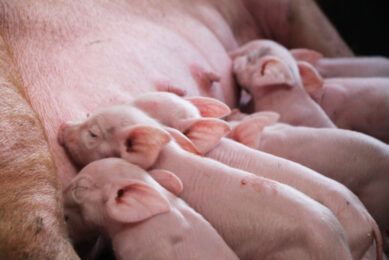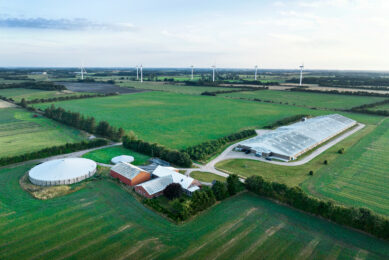Aarhus: Chocolate-coloured pigs helping scientists
They look like they are made of luscious dark chocolate – and, like chocolate, they originate from Mexico, However, the latest additions to the porcine family at the Faculty of Agricultural Sciences are not for eating.
They are for helping doctors better understand human diseases and for helping scientists in their continued development and improvement of a new cloning technique.
The litter of nine little, chocolate-coloured Yucatan piglets were born on 24 March 2009, containing the so-called PCSK9 D374Y gene. This is a human gene that can affect the cholesterol level, an important reason for arteriosclerosis. This makes them transgenic pigs, which means that they contain a gene from another species – in this case human.
The Yucatan pigs are also cloned. This means that exact copies of them have been made using modern biotechnological methods and this is where the scientists from the Faculty of Agricultural Sciences come into the picture.
“We receive pig cells from MD Jacob Fog Bentzon from Aarhus University Hospital. He carries out research in arteriosclerosis, among other things. The cells contain the human gene PCSK9, and when we receive them, we clone the cells using a technique that is still in the process of being developed. This means it is not yet routine work! Our challenge is to develop and improve the cloning technique even further and, in general, to investigate if the technique is feasible and not too demanding compared to the results it achieves”, says research professor Henrik Callesen from the Faculty of Agricultural Sciences.
The transgenic, cloned cells are inserted into regular sows at the Faculty of Agricultural Sciences by a veterinarian from KU-LIFE. The same veterinarian removes the piglets by a Caesarean section just short of four months later.
There is a large variation in the number of liveborn and surviving piglets in the cloned litters whether they are transgenic or not. “The technique is a biological and technological challenge all the way – for the ova, the foetuses and the liveborn piglets. We don’t breathe easily until a few days after their birth”, says Callesen.
The pig houses at the Faculty of Agricultural Sciences are gradually being filled with a broad range of transgenic pigs containing human genes for diseases. The world’s first cloned, transgenic pigs containing a gene for Alzheimer’s disease were born at the faculty two years ago and have since then given birth to their own Alzheimer piglets.
The cloned, transgenic pigs are being produced as part of a large, five-year project, ”Pigs and Health”, which is supported by the Danish National Advanced Technology Foundation and is a collaboration between the Danish Pig Production, Technical University of Denmark, Copenhagen University, and several faculties at Aarhus University, including the Faculty of Agricultural Sciences.
Related website
• Aarhus Faculty of Agricultural Sciences
©











